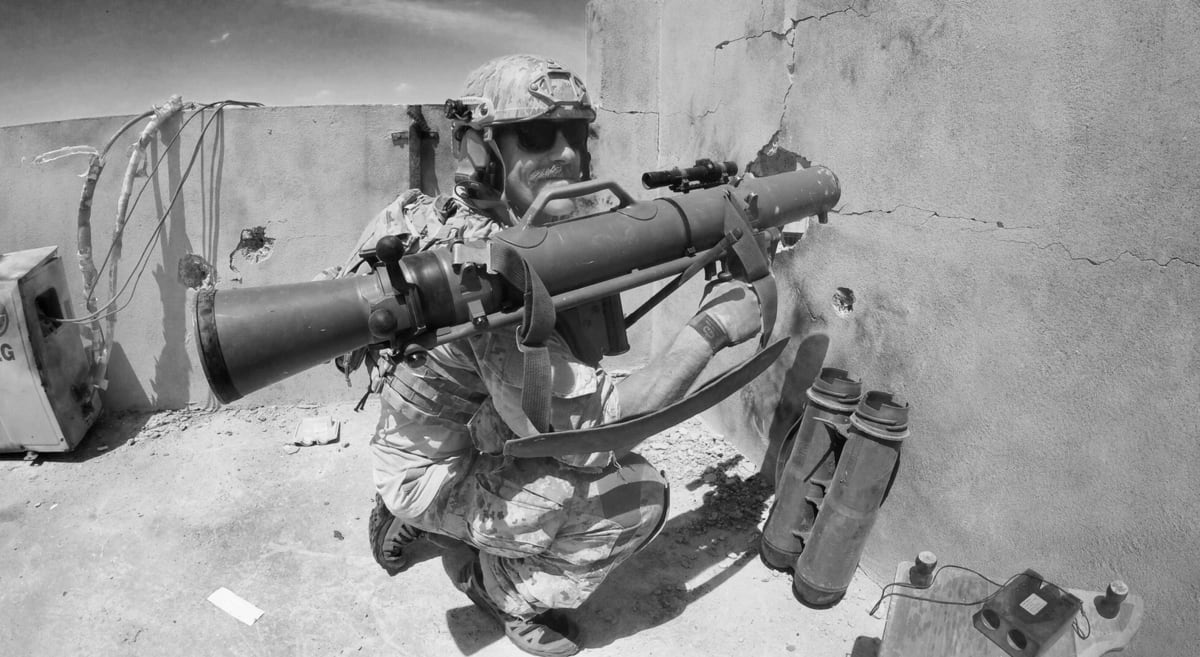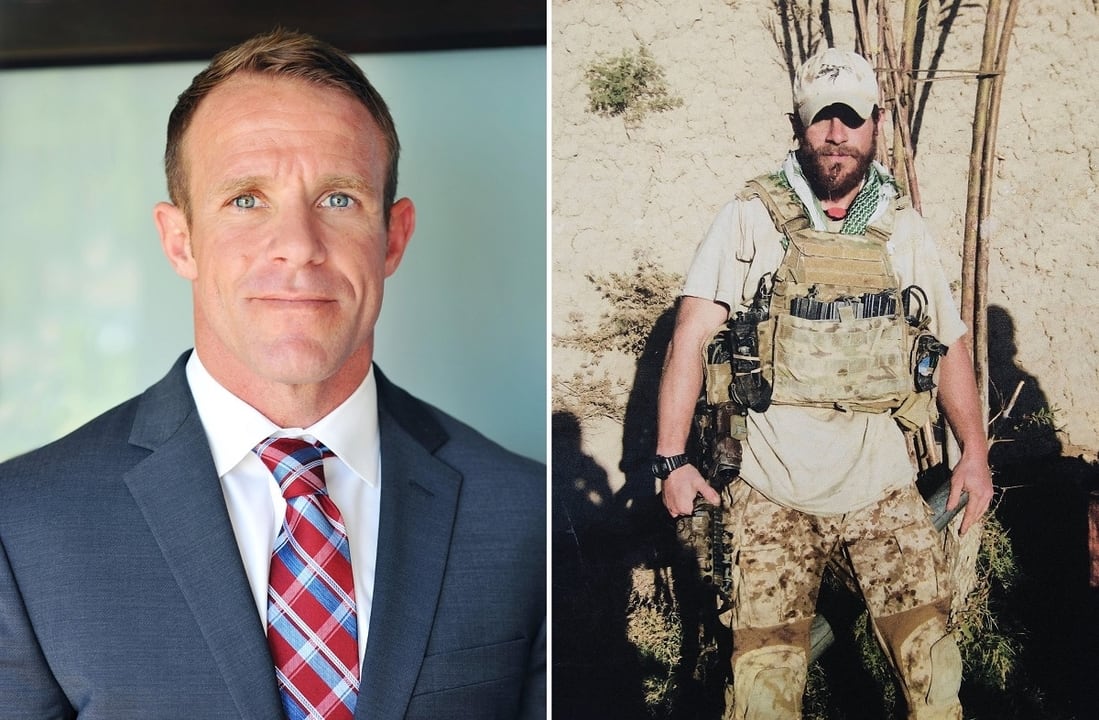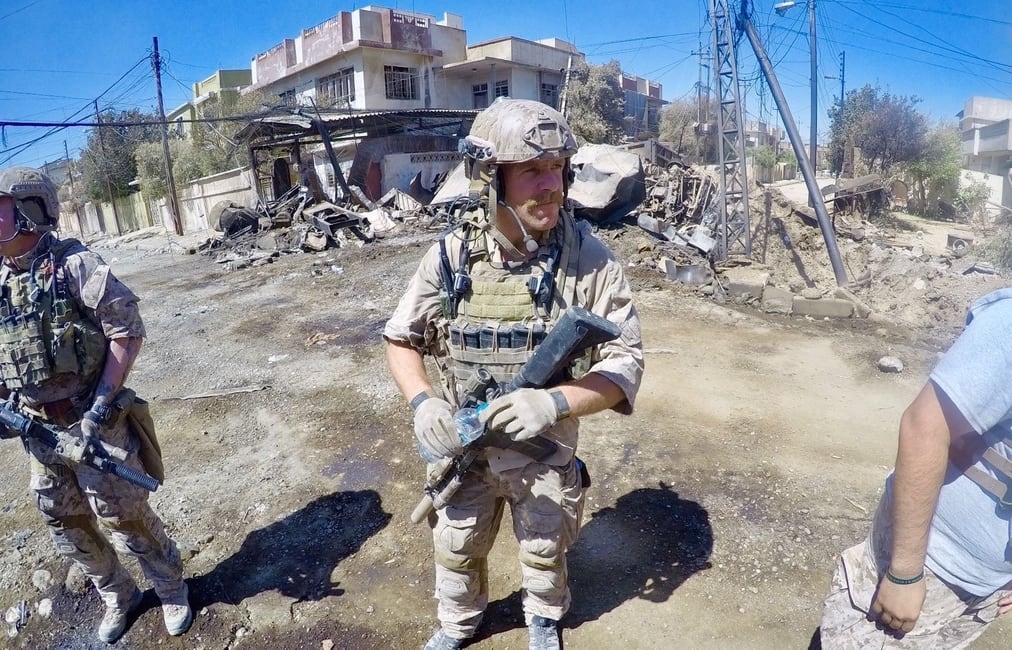Following a Pentagon directive, in 2009 the Secretary of the Navy ordered his sea service to create a repository of war crimes allegations.
Nearly nine years later, the Navy admitted that they never put anything in it.
It’s empty.
That’s one of the legal bombshells set to detonate Thursday morning in the ongoing war crimes prosecution of Navy Lt. Jacob X. “Jake” Portier, who stands accused of covering up a string of war crimes involving fellow SEAL Team 7 Chief Special Warfare Operator Edward “Eddie” Gallagher.
Email messages exchanged this week involving multiple attorneys at the Office of the Judge Advocate General at the Navy Yard in Washington, D.C., and Navy prosecutors in San Diego revealed that the war crimes repository is a shell.
“In accordance with SECNAVINST 3300.1C the Office of the Judge Advocate General (OJAG) established a central repository in 2009 for alleged law of war violations by or against Navy personnel,” wrote Lt. Cmdr. Aaron Waldo in one Tuesday message. “The repository does not currently contain any records.”
Instead, combatant commanders worldwide and the U.S. Army retain these reports, plus the Naval Criminal Investigative Service, Waldo wrote.
RELATED

Why does it matter?
Portier’s legal team on April 2 filed a motion accusing the Navy of selective prosecution and the attorneys are linking the lack of a repository to the case.
Selective prosecution occurs when prosecutors arbitrarily choose to target one defendant over others who could be alleged to have done similar things.
Often the accused is singled out because of race, religion or during a prosecutor’s bad faith effort to prevent the exercise of the defendant’s constitutional rights.
“It is troubling that my client is being selectively prosecuted for violating a SECNAV instruction that appears to have been willfully violated by the Navy Judge Advocate General,” said Portier’s civilian defense attorney, Jeremiah J. Sullivan III.
That instruction would serve as a standing lawful order, which Portier allegedly violated by failing to report up his chain of command the accusations against Gallagher.
Those include claims from fellow SEALs that the chief stabbed to death a seriously wounded Islamic State prisoner of war near the Iraqi city of Mosul in 2017, staged a macabre reenlistment ceremony next to his body, ruthlessly gunned down civilians with his sniper rifle and then threatened the witnesses in an effort to obstruct justice.
In fact, those allegations should’ve been forwarded “promptly” and “immediately” so that they could be placed in the service’s repository, much the way sexual assault accusations are collected by armed forces to the Pentagon and Congress to review, according to the directive.
It’s binding not only on the three-star admirals who have presided over the blank repository but also every sailor in the service, regardless of rank or rating.
RELATED

According to NCIS files provided to Navy Times, the platoon’s lead petty officer told investigators that he informed the platoon’s assistant officer in charge about the allegations.
But that lieutenant wasn’t charged.
The LPO also allegedly told a SEAL team command master chief about the allegations.
He also wasn’t charged, despite allegedly telling the SEAL not to mention the war crimes to their commodore.
A fellow petty officer recalled a meeting with their team commander, who allegedly told the SEALs to “stop talking about it.”
But that officer wasn’t charged.
Signed by Lt. Col. Nicholas W. McCue, an Air Force attorney detailed to Portier’s defense, the motion accuses the Navy of targeting the lieutenant because “prosecutors believe they can get Lt. Portier to testify against ... Gallagher by levying charges against both of them.”
Other than request that Navy Times continue its policy of never naming operational SEALs mentioned in the files, prosecutors declined comment.

In a memorandum for trial counsel obtained by Navy Times, the defense team also revealed significant involvement in the case by investigators reporting to the U.S. Department of Justice.
The documents don’t name the agency, but defense attorneys want prosecutors to turn over records that show the conversations between Navy officials and federal law enforcement.
Partly, the memorandum indicates, that’s because defense attorneys suspect the documents will reveal a pattern of unlawful command influence in the case.
Called the “mortal enemy of military justice,” unlawful command influence, or UCI, occurs when superiors utter words or take actions that wrongfully influence the outcome of court-martial cases, jeopardize the appellate process or undermine the public’s confidence in the armed forces by appearing to tip the scales of justice.
If the Navy judge hearing the motions Thursday agrees with defense attorneys, he could toss the entire case against Portier.
“The defense requests you provide communications between the DOJ and the USN that could be material to a motion for Unlawful Command Influence,” wrote McCue in his message to prosecutors.
“Specifically, the defense requests you provide any emails or letters wherein officials assigned to either the DOJ or the USN discussed expected outcomes to this case.”
RELATED

Portier’s legal team already has won several victories, his attorneys say.
“Prosecutors dismissed all false official statement charges against my client, including the alleged false statement that he was unaware of a Law of Armed Conflict violation,” Sullivan told Navy Times.
“My client has told the truth and he will be acquitted of all the charges at trial.”





